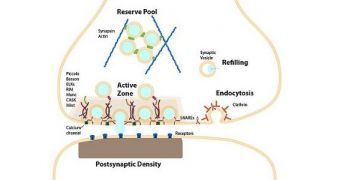Investigators with the Washington University in St. Louis (WUSL) found out about an interesting new aspect of the human brain in a recent study they conducted on adults. According to the team, the brain contains several regions that are still capable of forming new neural bonds, or synapses, even after the brain stops growing.
This capability of the brain is called plasticity, and refers to its ability to form neural connections and pathways to underlie learning a new skill or ability, or performing a new activity. For many years, researchers were convinced that the adult brain lost its ability to support learning new things easily.
In the new study, WUSL scientists and colleagues at the Allen Institute for Brain Science in Seattle were able to demonstrate that the brains of adults still displayed the childlike ability to make new connections. The discovery was made possible by analyzing gene expression patterns within various neural populations.
“Our new results connect this activity to a form of energy production known to be helpful for building biological structures, such as the new nerve cell branches needed to add connections in the brain,” explains the first author of the new study, Manu S. Goyal, MD.
Details of the investigation were published in a recent issue of the scientific journal Cell Metabolism, PsychCentral reports.

 14 DAY TRIAL //
14 DAY TRIAL //